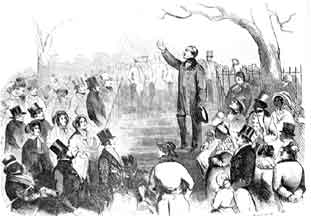1831 First National Negro Convention

The first National Negro Convention was held in Philadelphia from September 20-24, 1831. The convention was attended by delegates from Delaware, Maryland, New York, Pensylvania and Virginia. Chairing the convention was Richard Allen.
IThe National Negro Convention movement was an important and influential initiative of the 19th century in the United States. The first convention, held in Philadelphia in 1831, was an important gathering of Black leaders aiming to devise strategies for achieving racial equality, civil rights, and the abolition of slavery.
The Convention was attended by delegates from several states such as Delaware, Maryland, New York, Pennsylvania, and Virginia. Delegates were often clergymen, writers, and other well-known figures in the free Black community.
Richard Allen, who chaired the convention, was a prominent religious and social leader. He was a former enslaved person who purchased his freedom and became an influential minister and educator. He founded the African Methodist Episcopal (AME) Church, which was the first independent Black denomination in the United States.
The convention marked a significant step in the struggle for Black rights and freedoms. It aimed to create a unified strategy to fight against racial discrimination and slavery, and to improve educational and economic opportunities for African Americans. The delegates discussed various issues, such as how to respond to the American Colonization Society's proposal to send free Black people to Africa, particularly Liberia.
The National Negro Convention movement continued until the 1860s, and these gatherings had a profound impact on the fight for Black rights in the United States. They provided a platform for Black leaders to strategize and mobilize, played a critical role in the abolitionist movement, and laid the groundwork for future civil rights efforts.
 >
>